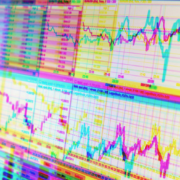WHICH ETFs TO CHOOSE?
As originally appeared in The Jerusalem Post on February 21st, 2020.
In a rising market, enough of your bad ideas will pay off so that you’ll never learn that you should have fewer ideas. Daniel Kahneman
What is the fastest-growing financial asset used by investors over the last 10-15 years? The answer: Exchange Traded Funds (ETF). As of this past July, over $4 trillion has been invested in ETFs just in the US.
Mark Kolakowski, of Investopedia, writes, “As the stock market surges to new record highs, an increasingly popular way to invest has passed a new milestone of its own, with assets under management (AUM) now passing the $4 trillion mark for U.S.-based ETF sponsors, per a report by ETF.com. While strong stock market gains have been a big factor in the rising value of equity ETFs, fixed income ETFs have enjoyed brisk inflows as well, the report indicates. The growth of ETF assets is breathtaking. It took 8 years for the U.S. ETF industry to reach $1 trillion in assets, but going from $3 trillion to $4 trillion took only 2 years.”
What are they?
ETFs are defined as “securities that track an index, a commodity or a basket of assets like an index fund, but trade like a stock on an exchange, thus experiencing price changes throughout the day as they are bought and sold.” In other words, an ETF is a security that tracks some kind of stock or bond index and allows the investor to track that specific index closely through buying this one particular product. For example, if an investor wants exposure to the S&P 500 stock index, she can either buy all 500 stocks, which would be very costly and time-consuming, or she can purchase an ETF. The ETF will track the S&P index nearly point for point.
There are thousands of ETFs out there. Believe it or not, there are many which don’t even trade or trade very small volumes daily. For example, the Invesco Global ESG Revenue ETF (ESGF) traded an average of under 600 shares per day. That’s nothing. It becomes easy to understand why it was recently shuttered. In fact, Invesco closed down 42 ETFs this week, due to little assets under management, low trading volumes, and redundancy of products.
Many times I will get calls from investors looking at a specific sector or subsector, and we actually will find an ETF that tracks that sector. But then upon more analysis, we see that it barely trades. What’s the problem of buying it regardless of how much it trades? This happens to be an interesting question. Ultimately it tracks the index so who cares if others are buying the product or not. There are 2 reasons not to make the purchase. 1- You are working against yourself. If it’s thinly traded that means there aren’t going to be a lot of sellers to buy it from. This means that the price will increase and increase until you are able to buy the number of shares that you want. You are effectively bidding against yourself. 2- Unwanted taxes. Let’s take the case of these 42 ETFs that were shut down. Investors may have bought them as a long-term holding and they may have a large gain that they never intended on selling. Now that it has been shut down, it gets cashed out and voila, you just incurred a capital gain which you will have to pay tax on.
Advantages
ETFs are great. They provide diversification and are very cheap! Nonetheless, be careful. We all have interesting investment ideas from time to time. That doesn’t mean that those ideas can be acted on. Sometimes after investigating you find that there is a way to invest but very few others have invested. I would highly recommend in such a case to skip it and go back to the drawing board, or keep an eye on the ETF and see if volume picks up, and then re-visit if it still makes sense to make the acquisition.
Managed Portfolio
There are thousands of ETFs out there. As such how can an investor cut through them all and know which ones make sense for their portfolio and have decent volume? More and more financial advisers have begun offering “Core ETF” portfolios. The idea is that these portfolios are globally diversified using basic ETFs. This creates the benefit of being linked to many stock indices, with the knowledge that the most appropriate ETFs are being used. In this case, the client does not need to worry about which ETF to use. Rather, she relies upon the analysis and expertise of advisers who specialize in this particular field.
If you are not yet using ETFs, review your portfolio to see if they make sense for you.
The information contained in this article reflects the opinion of the author and not necessarily the opinion of Portfolio Resources Group, Inc. or its affiliates.
Aaron Katsman is author of the book Retirement GPS: How to Navigate Your Way to A Secure Financial Future with Global Investing (McGraw-Hill), and is a licensed financial professional both in the United States and Israel, and helps people who open investment accounts in the United States. Securities are offered through Portfolio Resources Group, Inc. (www.prginc.net). Member FINRA, SIPC, MSRB, FSI. For more information, call (02) 624-0995 visit www.aaronkatsman.com or email aaron@lighthousecapital.co.il.








